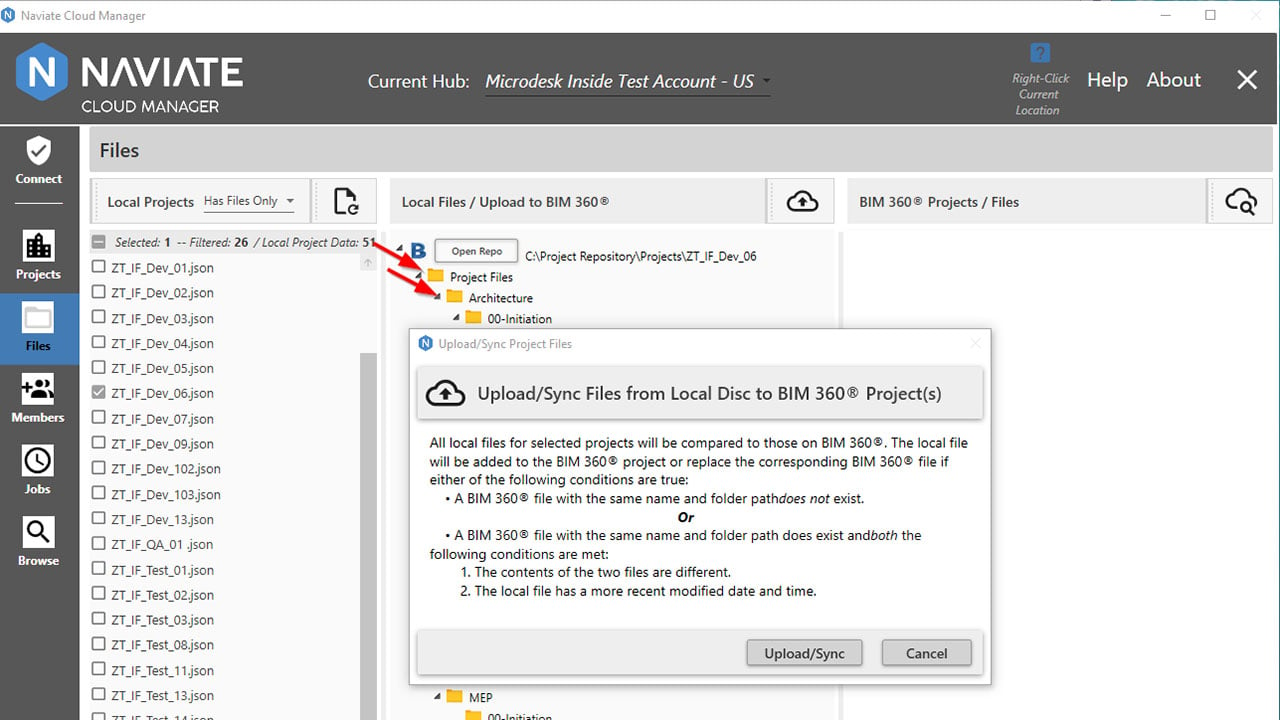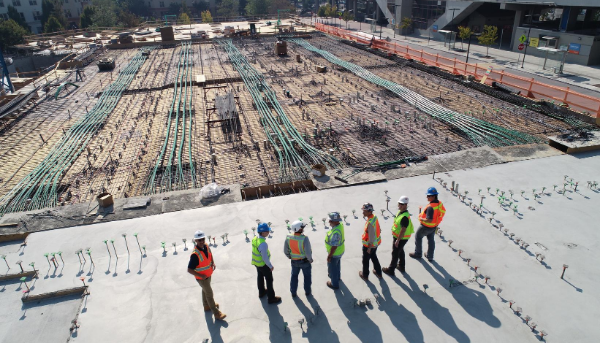As a structural engineer, it's essential to have reliable and efficient tools to improve your drawings, outputs, and documentation. Naviate Structure offers several functionalities to make these tasks easier and more streamlined.
In this blog post, we’ll explore two workflows (and a few other tools) that will help you create accurate documentation and precise drawings, then export data for further analysis.
Workflow 1: Documenting, coordinating, and numbering piles
- Choose/select the piles
- Assign data as required: numbering, pile marks, extensions/trims
- Assign coordinates to your piles
- Export the data
Naviate Structure has several ways to document piles, such as numbering/renumbering piles and assign pile marks. You can also use the pile extend tool to extend/trim piles to a pre-selected surface or to the nearest surface below the piles.
Additionally, the tools in Naviate Accelerate (which is included when you purchase Naviate Structure) can help you assign shared coordinates to piles. By using this tool, you can ensure that the surveyor has the correct coordinates to place the piles on site.
The final step is to create a schedule for the piles, add or remove parameters, and export the data to Excel using Naviate Accelerate.
Learn more about pile coordination and numbering by watching this video:
Workflow 2: Creating drawings
- Tag the piles you want to add to your drawing
- Create and configure new sheet
- Place your view on the sheet
- Export the drawing
Naviate Structure offers several functionalities to create drawings. You can tag the piles in the drawing, select the piles, go to the pile tab, and tag them with the tag you want. Accelerate tools can help you create the drawings you need, and you can use templates to create a new sheet. You select the view you want to create a drawing for, add a name, and create the drawing.
Finally, you can use the Quick Print or Quick PDF Export functionalities to print or export the drawing. Then, using Naviate Accelerate, you can export data to Excel or other software.
Watch this video to learn more about Quick Print:
Streamlining documentation with Publish
In addition to the previous workflows, the Publish feature in Naviate Accelerate allows you to publish your drawings, schedules, and other Revit information from the same place. This can save a lot of time and effort when sharing information with clients, contractors, and other stakeholders, and can also help to ensure that all relevant information is included in one place.
Additionally, the Publish feature can be customized to meet the specific needs of your project, including selecting the sheets to include, the order of the sheets, and other settings.
Learn more about the Publish tool in this blog post.
Conclusion
Naviate Structure offers several functionalities that can help you improve your drawings, outputs, and documentation. By using the pile numbering, pile tag, and pile extent functionalities, you can create accurate documentation for your piles. Using Accelerate tools, you can create precise drawings, and by using Quick Print, Quick PDF Export, or Publish, you can easily export data for further analysis. These workflows can help you streamline your work and save time, making it easier to focus on the design process.
Naviate Structure and Naviate Accelerate come bundled together, so you have access to all these tools when you purchase Naviate Structure. Why not try them out today with a 30-day free trial?




